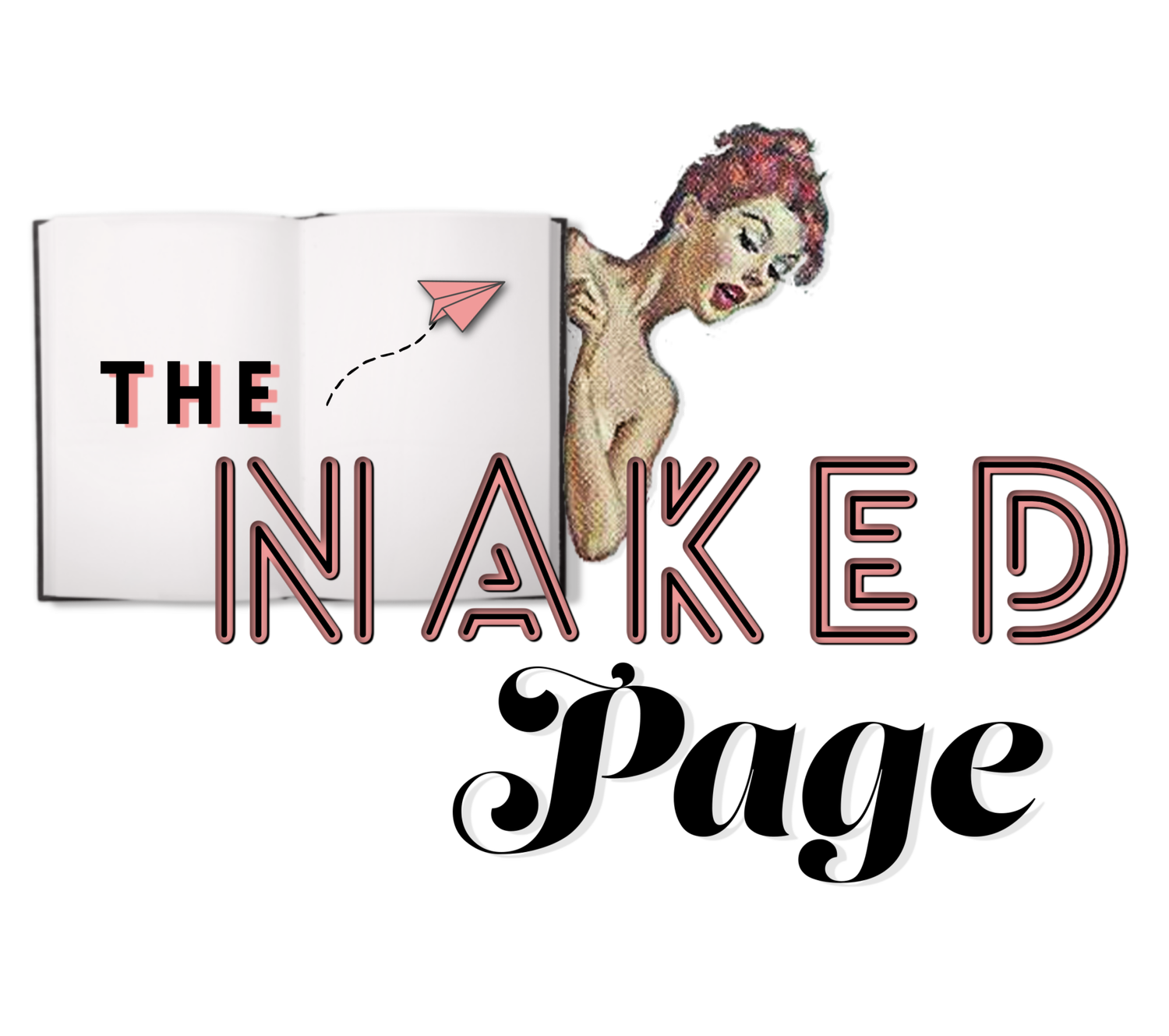How to Write About (and Work Through) the Most Hidden Emotion—Humiliation
Let’s go back to your high school days. You’re sitting in the cafeteria when some insecure kid you thought was your friend decides to expose your biggest secret to the whole lunch table. Maybe you told this “friend” something in confidence like you used to wet the bed. Or she knows you have a crush on Tommy the drummer of your high school hair band. [Pick your poison and insert it here.]
Today, she’s decided to let the cat out of the bag. And she’ll be doing it in front of everyone. Lucky you, you’ve now got an audience to make you feel the size of an ant about to be squashed under someone’s shoe.
Ever have anything like this happen? What’s going on inside your brain and body when you think of this moment?
Sure, last year when you walked out of the bathroom with your dress tucked into your leggings, your face turned beet red. You felt embarrassed. But you and your friends laugh about that now.
This isn’t that feeling.
This is totally different terrain. This is humiliation.
One encounter with humiliation has haunted me for years. When I first began my flight attendant career, I was beyond broke. You don’t get paid to attend the five weeks of required flight training prior to starting your job as a Sassy Stew. You’re also required to fly for another month before you receive your first paycheck.
Yes, I was practically starving.
Unlike some of the younger flight attendants who had family support during training, financially I was flying solo. Starting out as reserve crew, I had nothing left after bills and rent.
I remember flying into an unfamiliar city and sitting in my hotel room, my stomach gnawing at me. I wouldn’t get paid until after midnight just when all the local restaurants were closing down. I went to bed hungry just praying my paycheck would be there in the morning.
On my first trip, I realized I’d be expected to tip every shuttle driver $1. I had no extra cash. Of course, I got stuck traveling with Mr. Bossy Flight Attendant #787. He took it upon himself to gather all the dollars from each flight attendant to hand over in one lump sum to the shuttle driver.
When he got to me, I froze.
“I don’t have it,” I said.
“You don’t even have $1,” he probed.
“No,” I said humiliated.
There was so much going through my mind.
Sure, I had traveled before, but I had never spent so much time being hauled around by airplanes and shuttle services. I wasn’t sure how any of this worked. I felt guilty that I wasn’t prepared. I was angry that not one instructor in our training class had mentioned tipping on our meager budgets after the company’s required beauty regimen of hair, nails, stockings, etc. had swallowed my last nickel. I was mortified that I was so broke. And deeply ashamed that this bossy flight attendant had spotlighted my struggles.
Maybe to him, it was just $1, but to me, it was everything.
It was another dollar for each shuttle to and from the airport. In between pay periods that could total $10-$12. A small fortune that might be used for two meals or more. And the icing on the cake? While we were expected to tip all these people on a trip—shuttle drivers, hotel cleaning staff, and waitstaff (people we couldn’t avoid while working)—we were required by the airlines to refuse any tips given to us by passengers, even in first class.
I still get uncomfortable recounting this memory, it feels so shameful.
One of the deepest and darkest emotions you’ll ever have to confront is humiliation.
But that bossy flight attendant—I wasn’t the only person he chose to humiliate.
While on our next flight, a passenger boarded who was in hysterics. She had to return home quickly for a funeral, but that wasn’t what led to her tear-stained face. She had no experience flying and jumped at every noise she heard on the flight. This bossy flight attendant stood in the aft galley behind the curtain making fun of her.
Of course, he wasn’t afraid of flying because it was his job and he’d been properly trained on all aspects of an aircraft. But this poor woman who had never flown before couldn’t help feeling fearful. Nobody had taught her that every bump of turbulence wasn’t a cause for alarm. And wasn’t it our job as flight attendants to calm her nerves?
Whether it’s something gigantic like hidden family abuse or fearing you’ll fall out of the sky when you won’t, humiliation can rear its ugly head.
Writing about your emotions is never easy. But you, Sassy Scribe, are so dedicated to your craft, I bet there are a few feelings you’ve gotten the hang of penning to paper. Joy feels easy to describe, although with little conflict I find it doesn’t always have the punch I need in the written word. Still, there’s no anguish associated with it.
Sadness and grief from loss or trauma may seem difficult to tackle at first. But those two are surprisingly easy to master because they come up so often. Maybe it’s because I always find a little bit of humor in tragedy. If you can capitalize on comedy, you’ll find fresh ways to analyze your traumatic experiences. And even if you don’t pinpoint humor, some of us are so used to working out our grief on the page that it’s become old hat.
Resentment and anger are also emotions that aren’t too hard to get down on the page. My guess is we can often vouch for our resentments because someone did something to us that is universally unacceptable. The blame’s on them, right? And then there’s that righteous anger that makes us think we’re acting out of a sense of justice.
“Oh, hi there, Jesus in the Temple. Don’t mind me, I’m just noticing how righteous your anger is today. Seems justified. You do you! BTW, thumbs up on the wine. Is it gluten-free?”
But what’s with humiliation?
It rarely gets talked about.
If we do a Pixar Inside Out roll call there’s Joy, Fear, Disgust, Anger, and finally Sadness in the lineup. Nope, no Humiliation represented.
But let’s face it. None of us are immune to humiliation. It has left its mark on all of us at some point in our lives. Humiliation just gets buried down in that emotional well we rarely drop our bucket into. So deep, in fact, that even though I know I’ve said, “I feel humiliated” on multiple occasions, I had to look up the definition.
What exactly is humiliation?
Humiliation is defined as reducing someone’s status or worth to a lower position.
Shame. Guilt. Embarrassment. Humiliation.
Are these all the same?
Little Red from the website The Developerhood and in reference to Brené Brown’s Power of Vulnerability lectures explains all four in her insightful article entitled Know the Difference Between Shame, Guilt, Humiliation and Embarrassment.
To summarize, she says that guilt is the feeling you get when you know you’ve done something wrong. Embarrassment is more of a momentary discomfort, fleeting, and a bit silly. While shame and humiliation hit much deeper and are the two to keep our eyes on. Shame makes people feel like they’ve violated some social mores—it instills that moral compass we all need so we don’t turn into serial killers.
No nuns need apply. We all know, you got this!
But humiliation—now that’s a world all its own. Not only does humiliation reduce someone's standing or worth, but—and here’s the big takeaway—humiliation is undeserved.
Perhaps I gave you the above example about high school because when I think about humiliation, I often reflect on teaching.
I will never forget a situation that happened to one of my students.
The moment Daniel stumbled into my classroom just after the bell rang, I knew something was off.
Within five seconds in walked Mrs. Drayton. I used to substitute for her before I became a full-time teacher. I liked her fine, but the kids acted like she was the Evil Queen. Connection was never Mrs. Drayton’s goal.
When she walked into my classroom, she wasn’t alone. She was followed by a security guard holding tight to a walkie-talkie who positioned himself at my door.
Over at my desk chatting with another student, I was taken aback when I saw her sweep in without a word and approach my podium. She called Daniel out in front of my entire class and started firing questions at him. She demanded he come up to my podium and he headed for the door, but the security guard blocked him in as Mrs. Drayton continued to berate him. The security guard signaled for him to return to my podium where Mrs. Drayton stood writing up an incident report. The two authority figures hemmed him in as the scolding continued.
I could feel Daniel’s humiliation across the room. I wanted to jump to his rescue but I, too felt, humiliated, and reduced to dust. Wasn’t he my student and didn’t this teacher take over my classroom like I was nothing?
She left him with no escape from the browbeating. And I felt every lash.
To this day, I still don’t know what he did that required this kind of public shaming. But I made a commitment to myself that I would never humiliate my students in that way. Not ever.
I can write about this encounter because I witnessed it. But writing about an act of your own humiliation— now that takes courage. I can honestly say I’ve put off addressing this topic longer than any other.
If you’ve read this blog before, you know I regularly encourage writers to get into the messy middle and begin writing right as their world comes crashing down. Yet when it comes to addressing humiliation, well, that’s one you may have to sit with for a long time before you can tackle it head-on.
Just recently I got back some not-great test results and discovered my thyroid is up to its old tricks again. Interestingly, Louise Hay states that your thyroid is associated with humiliation. It makes sense. I can identify a link between my health issues and much of my unresolved spiritual upheaval, especially regarding unresolved humiliation. To be a bit weird about it, I think I grieve well, but I don’t handle humiliation with much composure.
Y’all know (or should know) by now of my resentment over repeatedly having my writing career hijacked. First by the dreaded day jobs, then by postpartum depression, then by COVID and other health problems. After moving back to the South, I really thought I was going to be on the mend. But last November I had another setback and I never felt like I fully recovered from it. I let go of yoga and then my writing—my sources of recovery.
Resentment has long been on my list to be dealt with. But I had never considered humiliation as the reason for not addressing those resentments. Only now as I examine them does humiliation shine like a glaring neon sign.
There are humiliations at the hands of my parents. The humiliation of working my ass off and still never making any money. The humiliation of not understanding why my body feels like it’s betraying me. The list is long.
These are memories that are buried deep within me that I haven’t reflected on all that often.
If we can be green with envy, red with passion, and sing the blues, I’d say my humiliations are the color of a very dark purplish bruise. Aubergine, perhaps.
Danny Devito in his role as Matilda’s father flashes in my head.
“Listen, you little wise acre. I’m smart, you’re dumb. I’m big, you’re little. I’m right, you’re wrong.”
It doesn’t get more humiliating than that, does it? With each insinuation, there’s a greater loss of control. How could a 5-year-old be smarter, bigger, or more correct than her own parent?
Are you starting to feel sick to your stomach yet? I’m getting there.
What’s with this overpowering emotion?
I remember watching the documentary Montage of Heck and learning that Kurt Cobain hated to be humiliated. Now doesn’t all that 1990s grunge aesthetic suddenly make sense? Those baggy clothes, that hair hanging down hiding his face, and those stooped shoulders. The use of all external garb to bring him inward and not have to face a bloodthirsty audience. All camouflage to protect against humiliation.
I get it.
I think much of my writing stays on the back burner out of fear of being humiliated in public for saying the wrong thing or being misunderstood. But I’m learning to put myself out there, not just for me, but for anyone who might benefit from what I must share.
To expose my child to music and more children her age, we found our way to a local Methodist church. It’s a nice place, but we aren’t particularly religious, so it feels a bit odd and out of character for us when we attend. Like we don’t exactly belong, and everyone knows it. Each Sunday morning, I harbor a secret fantasy I’ll run off the next week to the local Unitarian Universalist church.
Despite the UU’s lackluster kumbaya-style music and how let down I felt when they closed their doors for much too long after COVID struck, I still find their basic principles unparalleled.
The first principle of the Unitarian Universalists is the inherent worth and dignity of every person.
Lightbulb.
What is the opposite of humiliation? Well, I’d say having worth and dignity.
So how do you prepare yourself to work through any remaining humiliations and rediscover worth and dignity?
It may not be possible to simply reframe humiliation as something lighter like embarrassment. I believe the key to working through humiliation in our writing is to focus on that one specific word in its definition: undeserved. You aren’t feeling shame over something you’ve done wrong. Instead, you may need to sit with how society has unfairly maligned you and realize that while undeserved then, you hold power as a writer today.
Surprisingly, the antidote to your own humiliations may be in how you choose not to humiliate others.
To pay it forward.
Like my teenager whose public degradation proved to me how important it was to confirm all my students’ worth. Or that terrified passenger who made me more aware of how frightened people are especially deserving of dignity. I’m certain the purpose of our humiliations is to better understand the inherent value we all bring to this world.
If you have a memoir you’re eager to write, but hesitate to start it due to revealing certain humiliations, know that most readers are on your side. They want to empathize with you. To love your loves and to feel your fears, but only if authentically detailed. Your testament to these painful memories may encourage someone to have more self-respect and decency. And while you might be the victim of humiliation, you don’t have to pass it along to others.
We can all do better.
Writing a memoir is a great place to hold the worth and dignity of all those people we encounter and that includes ourselves.


